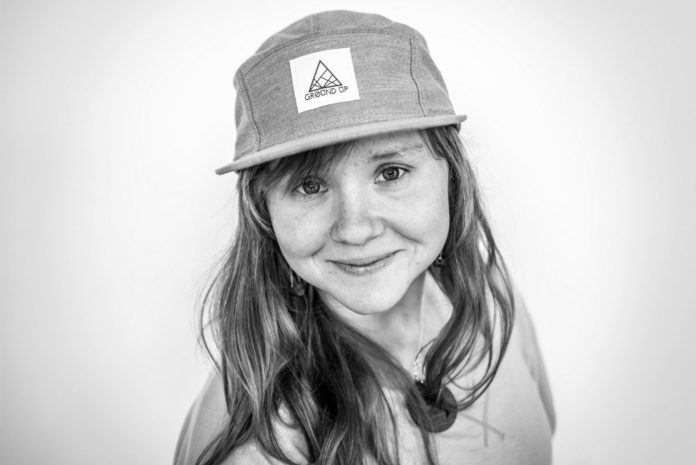
Behind the Desk… is an ongoing series that interviews people influencing and advancing the climbing industry in gyms around the country. This time CBJ heads (virtually) up to British Columbia to talk about the Canadian government’s reaction to the pandemic, a gym’s priority to serve the community, storytelling in climbing media, and much more in this Behind the Desk with Lauren Watson.
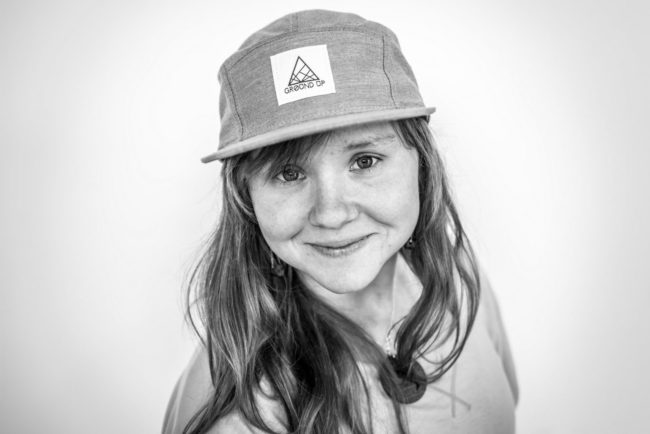
Name: Lauren Watson
Title: Director/Co-Owner
Gym: Ground Up Climbing Centre
Location: Squamish, British Columbia
CBJ: I’ve done a little research and found that Ground Up opened in 2015. What was the impetus behind starting the gym, and is all the construction and development remembered fondly in hindsight?
Watson: Well, Squamish did not have a commercial climbing gym. We have a small co-op for experienced climbers and we have lots of very accessible rock, but for the long and rainy winters there is limited space for training and for learning to climb. I was working on another life goal at the time, but pivoted during my first winter; the lack of activity available to Squamish locals other than hanging out at the local bar was enough motivation for me. I knew this was somewhere I wanted to be for a long time—building myself a job seemed like a surefire way to stay.
With no real business background, building a gym was a great opportunity to learn a lot of new skills but it was also a steep learning curve. Opening the doors took three years, which was sandbagged by other gym owners telling me it could take as little as six months. There was a lot of push back both from the community, who didn’t really know us, and from people thinking Squamish was too small to support a gym (17,000 residents at the time). I did a few road trips and visited over 50 gyms around Canada and the States and was trusted with numbers from many of them to support my theory that it was possible with the right model. At the first CWA conference I attended in 2013 I slept in my car in the parking lot because that was in my budget. I fully recognize the privilege I have to feel comfortable taking those risks, both socially and financially. I also had one main partner in the business since the very beginning—Adrian Blachut—who supported the business plan in its first form and believed in what it could be.
My naivety and misplaced confidence was an asset; if I had known what would be involved, it would have been far too daunting and overwhelming.
In hindsight, I loved it—it turns out I love strategy work! I had (and still have) a lot to learn about human behavior and I actually find it all quite fascinating; learning how to adapt to communicate effectively and authentically in the construction world versus banking world versus shareholder negotiations versus speaking to customers…is exhausting and vulnerable, but has since enriched my life quite a lot. I consider the concept of “community” in a new light and consider ways we can develop the values of growth mindset and radical honesty in our programs, staffing and community at large.
In summation—yes, fond memories. But still type 3 on the “fun scale.” The road is long and I still have a ways to go, but I have a strong team of owners and staff who I can lean on and learn from.
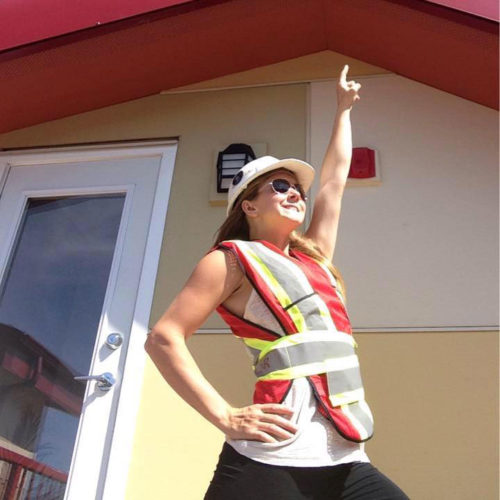
CBJ: I also noticed online that you have a background in research and writing—specifically about climbing. Do you still keep your finger closely on the pulse of climbing publications, so to speak? And if so, what’s your opinion on climbing media these days?
Watson: Oouf. You are going for it, eh? Well, honestly I have moved away from the pulse of climbing news—particularly the politics of it, but I still see a lot of value in good journalism. Right before opening the gym I had been working to be accepted to a Masters of Journalism at the University of British Columbia, looking to take on more investigative journalism. I find the changing trends in media very interesting, reflecting the way we find and process new ideas and information. It has never been more important for all fields of news and journalism to be transparent on bias, well-researched, and show rational compassion.
Good storytelling that allows for the human condition to shine through trumps the topic. It needs to bring minds together; help us learn and grow through discussion of novel ideas, not divide us. Climbing can be a great vehicle for those discussions. I think climbing media has an opportunity to take a community already skilled in problem solving and sharing beta and create that link for how we can work through larger social and environmental challenges.
CBJ: CBJ is exploring the topic of gyms giving COVID orientations, and I know that’s something that Ground Up is doing, in-person and via video. How are operations going at Ground Up in this era, and what are some common questions that your customers seem to have during those COVID orientations?
Watson: We are uniquely situated as an industry that already has a customer base habituated to assessing risk and staff who are trained to mitigating it. To look at COVID-19 threats as another risk, with protocols and redundancies, makes it easier to understand how we can manage it and educate our customers to make good decisions. We’re providing our customers with a foundation of knowledge so they can mitigate their own risks and know when to ask us for support with the new policies and systems.
The Squamish community has been very supportive of us and our decisions throughout the past few months and since we have reopened. We have had very few questions. Most have said they are impressed that we are doing “enough, but not too much.” I could chalk that up to saying we have done such a good job, but I also think that is because our community has not been immediately threatened by the virus to date. That could very well change and we want to be ready to change and adapt moving forward.
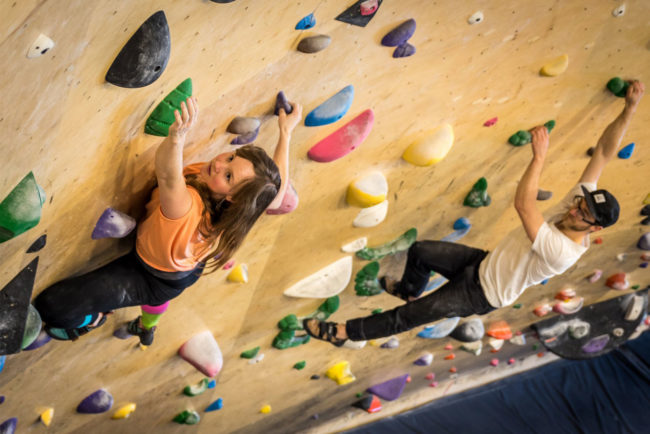
CBJ: Are there any subtle differences you noticed in the way the Canadian gym industry handled the COVID-19 pandemic compared to the way the US gym industry handled it?
Watson: Squamish, and British Columbia as a whole, have been quite lucky with strong leadership from Dr. Bonnie Henry (our provincial health officer), low numbers of COVID-19 cases, and quick contact tracing. Businesses and individuals were making decisions to protect their communities before the government was imposing restrictions. Our gym was never actually asked to close, that was our prerogative to protect our community as we did not know what we were dealing with or how to responsibly offer our services. It is pretty interesting to reflect on that from the perspective of how much information we get these days and how the public digests what we hear.
I have been very impressed by the Canadian government’s reaction and their quick actions to protect workers and small business as well as by their communication and feedback channels. Of course it was still frustrating and confusing at times, but for bureaucracy it was quite an agile response in my opinion. No comment on USA leadership, but I know the climbing industry has been working together and working hard to get the support it needs and its communities need.
Since that first terrifying week of March 16th, I have been motivated by how the climbing industry has come together to support the gyms and provide avenues for discussion and action. I worked as a volunteer with Garnet Moore, through the CWA advising on industry COVID guidelines and with the Climbing Escalade Canada task force for lobbying our government for support and recognition. The Association of BC Climbing Gym Owners (ABCCGO) was formed to figure out how to tackle this with what we know, and adapt to meet the needs of our communities. It is really a testament to what we can do when we “share the beta,” and I think both Canada and the States are doing a great job of using resources and forums to support each other.
The ABCCGO is still meeting weekly to check on how everyone is doing and what updates we each have from regional public health officers to figure out what we can do to survive the next steps. We have also decided there is value to this association beyond COVID-19 support and most of the business owners have stated we would like to keep meeting to tackle tough issues, support each other and better support our communities. That is pretty unheard of in many industries—it makes me proud to be a part of it.
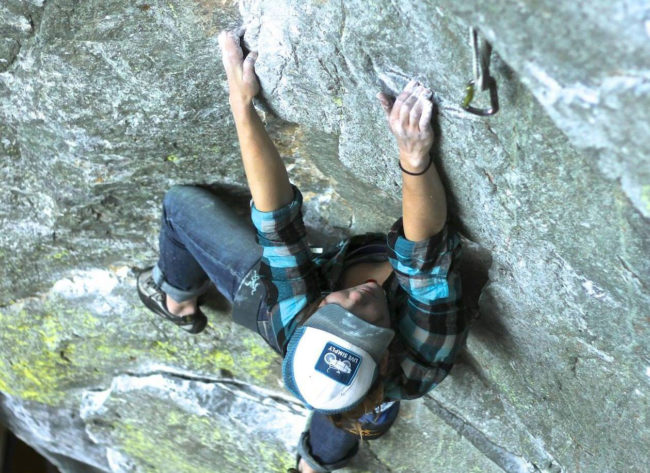
CBJ: How do you think this COVID-19 crisis is going to impact gyms in the long-term? Speaking personally, although I certainly understand the reasoning, it still feels a bit weird to go to a gym and social distance and climb with a mask. Do you see the climbing industry reaching a point where that stuff feels totally normal?
Watson: That is also a hard one. We have reopened in a staged way, knowing first of all that our current operations are not financially viable without the current loans and subsidies we are receiving. We also know we will have to change over time, relax or add certain restrictions we have in our toolkit based on cases and risk of transmission. Our priority right now is to serve our community responsibly and figure out how to survive as a business after that.
I think some gyms may be tempted to keep certain measures in place after COVID-19, and some customers may actually like the physical distance and access to the gym being more prescribed with lower capacity on each visit. I think people will adapt pretty quickly to new routines, but at the end—to be financially viable, gyms will have to return to many of the old ways sooner than later or make more drastic adjustments to price, programs and staffing.
Share your story
Are you leading a climbing gym or brand through this unprecedented period? Or, do you work in the industry and have a story that others could benefit from hearing? If so, please contact us and tell us about it.
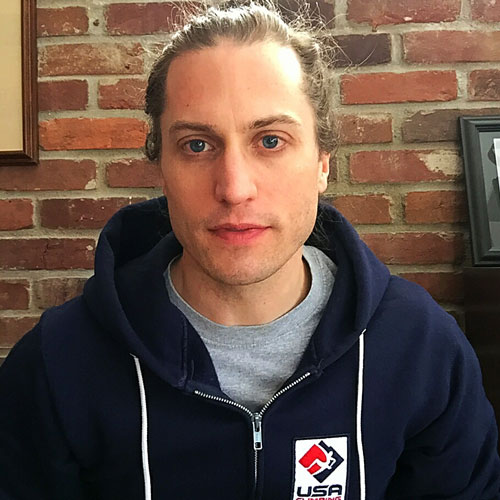
John Burgman is the author of High Drama, a book that chronicles the history of American competition climbing. He is a Fulbright journalism grant recipient and a former magazine editor. He holds a master’s degree from New York University and bachelor’s degree from Miami University. In addition to writing, he coaches a youth bouldering team. Follow him on Twitter @John_Burgman and Instagram @jbclimbs. Read our interview Meet John Burgman, U.S. Comp Climbing’s Top Journalist.








